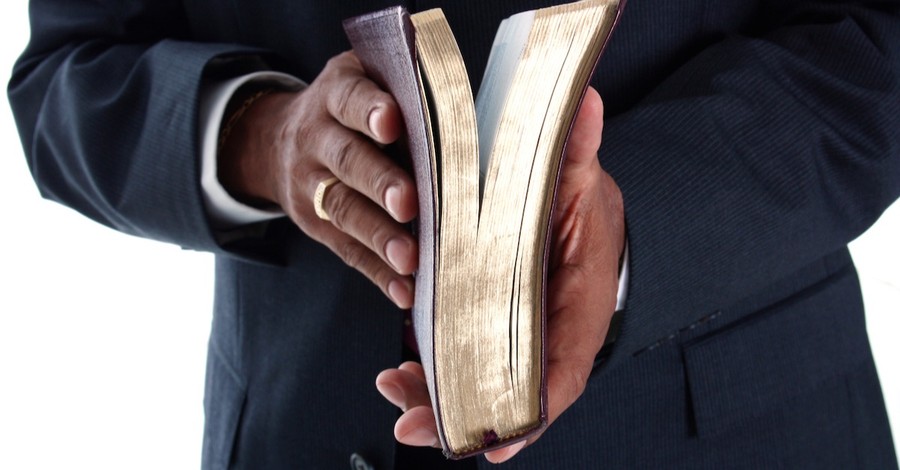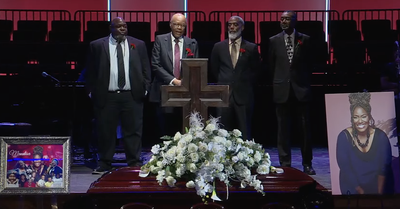
Pastoring is always a difficult job. I can’t think of another job, in fact, in which someone is hired to do one thing (typically, lead and disciple God’s people) but evaluated on a completely different thing (namely, growing the audience and the budget).
Pastoring during coronavirus seems even more unenviable. Zoom stock might be way up as the new preferred platform for corporations and schools, but there no digital substitute for the sort of face-to-face work pastoring requires. When to close down was a tough decision. When to reopen is even more difficult. If pastors choose to strictly adhere to state guidelines, they will upset people. If they ignore or relax those guidelines, they upset others. In almost every church I know of, pastors face a no-win proposition right now.
In addition to navigating a global pandemic, pastors must also deal with our already intense and only intensifying cultural firestorms. While we all must navigate the issues of race, sexuality and gender, criminal justice, political divisions, and other markers of our fallen human nature that dominate this cultural moment, pastors face expectations that many of us don’t. I can’t tell you how many times I’ve seen this phrase on social media recently: “If your pastor doesn’t preach about X from the pulpit this Sunday, it’s time to find a new church.” Same phrase, but the X changes with the headlines.
Don’t get me wrong. As the true account of the human condition, the Bible has this quality of universal relevance. Pastors should make the connection between the timeless truths of Scripture and our particular context, in their preaching and in their leading. There are times that to not address something from the pulpit is to be louder than addressing it, and churches that never address controversial issues risk giving their people the impression that the Bible is our own personal, private collection of encouragements rather than the personal, public and true account of the human condition.
At the same time, the loud demands placed today on pastors to not only hold but to articulate our approved opinions reveals more about us than about our pastors. After all, if we are confident our pastors are called by God and entrusted by Him to lead us into His Word and His will, that leaves little room for making demands on what he teaches.
Also, our loud demands that a pastor “talk about subject X,” almost always means “say specifically what I want him to say about subject X.” But that also means we’re not really looking for a pastor or a teacher anymore. We’re looking for a parrot.
The demands pastors face can range from mountains to molehills but, in too many cases, they are treated the same. To bring up the most common elephant in the sanctuary today, everyone has strong feelings about masks. I do too. But being asked to wear a mask in church by pastors seeking to comply with civic authorities or protect the health of parishioners is not a matter of orthodoxy. This is not a sufficient cause of outrage or of making demands for our pastor’s compliance. And it’s certainly not worth leaving a church over.
Keep in mind that pastors are called to shepherd specific congregations. Though the big cultural issues are always relevant, each community and each congregation find themselves in a specific time and place (as Paul told the Athenians) with specific people and circumstances all orchestrated by God. For example, a church connected to an addiction recovery center, as is the home church of a colleague, will be made of people with specific needs and challenges that others may not have.
What is really at stake here is that we all need to foster a proper ecclesiology, (that’s a $.50 word for the doctrine of the church). When we view church like we do so much of 21st-century western life, as consumers, we’ll see church as a place to be entertained or affirmed, in our feelings and in our views. That, rather than a fidelity to Christ and His Gospel, is what’s driving so much of the entitlement we feel, and pastors face.
Every church and every Christian, of course, ought expect and demand that pastors preach the true Word of God with passion and courage. We ought never allow a pastor to abuse his power or his position in exploiting the congregation.
Still, we ought never demand that our pastor never disagree with us. The holy willingness of a pastor to say what’s true is only matched by the holy willingness of a Christ follower to hear what we may not like. And again, don’t leave a church over a mask.
Publication date: July 7, 2020
Photo courtesy: ©Thinkstock
The views expressed in this commentary do not necessarily reflect those of CrosswalkHeadlines.
BreakPoint is a program of the Colson Center for Christian Worldview. BreakPoint commentaries offer incisive content people can't find anywhere else; content that cuts through the fog of relativism and the news cycle with truth and compassion. Founded by Chuck Colson (1931 – 2012) in 1991 as a daily radio broadcast, BreakPoint provides a Christian perspective on today's news and trends. Today, you can get it in written and a variety of audio formats: on the web, the radio, or your favorite podcast app on the go.
John Stonestreet is President of the Colson Center for Christian Worldview, and radio host of BreakPoint, a daily national radio program providing thought-provoking commentaries on current events and life issues from a biblical worldview. John holds degrees from Trinity Evangelical Divinity School (IL) and Bryan College (TN), and is the co-author of Making Sense of Your World: A Biblical Worldview.











